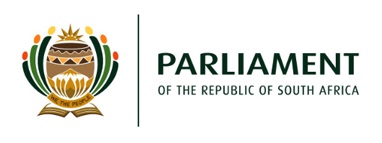The Select Committee on Public Infrastructure and the Minister in the Presidency heard joint oral submissions from stakeholders on the Marine Oil Pollution (Preparedness, Response and Cooperation) Bill [B10-2022].
The bill aims to incorporate the provisions of the International Convention on Oil Pollution Preparedness, Response and Cooperation (OPRC) into South African law. As a party to the OPRC Convention, South Africa is required to adopt measures to prepare for and respond to potential oil spills in the country’s maritime domain.
Committee Chairperson Mr Rikus Badenhorst said combatting marine oil pollution is not only an environmental concern, it is also an economic, social and legal imperative. The destruction of marine habitats, the violation of environmental rights and the significant threats to livelihoods, particularly those dependent on the ocean economy, demand decisive legislative action.
“As outlined in the International Convention on Oil Pollution Preparedness, Response and Cooperation (OPRC), to which South Africa is a party, we have a duty to ensure that our legislative framework adequately provides for prevention, response and accountability in cases of marine oil pollution,” said Mr Badenhorst.
The committee was of the view that the presentations and submissions received reaffirmed the urgency of strengthening South Africa’s legislative framework for marine oil pollution prevention and response.
Key insights were shared by organisations such as the Biodiversity Law Centre, SANCCOB [Southern African Foundation for the Conservation of Coastal Birds], BirdLife South Africa, the Green Connection, and Natural Justice. The stakeholders raised issues around delays in coordination between agencies and government officials during oil spill incidents, which allow the pollution to continue unabated. They also stressed the importance of integrating traditional ecological knowledge and ensuring transparent and accessible compensation mechanisms for affected communities.
Members of the committee picked up on the issue raised by stakeholders about the importance of including traditional healers in the discussions. The committee said traditional healers have a deep connection to the ocean and as custodians of cultural heritage and environmental stewardship cannot be overlooked. Engaging these communities is essential for holistic and effective marine resource management. The bill is currently in the provinces for the public participation process.
The Department of Transport provided a detailed responses to the stakeholder submissions, highlighting existing mechanisms and measures in place to address marine pollution, including the standby tug vessels patrolling the coastline and the country’s membership of international treaties, such as the OPRC.
Mr Badenhorst said that as the committee continues its oversight role, members will remain vigilant in monitoring the implementation of the bill once it is enacted. “We are committed to ensuring that the necessary regulations are promulgated without delay and that our collective responsibility to safeguard our marine resources is upheld,” he said.
“The ongoing work to refine this bill must ensure that it is practical, enforceable and adequately resourced to fulfill its objectives effectively. We emphasise the importance of empowering relevant authorities, including the South African Maritime Safety Authority, and engaging coastal communities and small-scale fishers in decision-making and response efforts,” added Mr Badenhorst.
Distributed by APO Group on behalf of Republic of South Africa: The Parliament.



